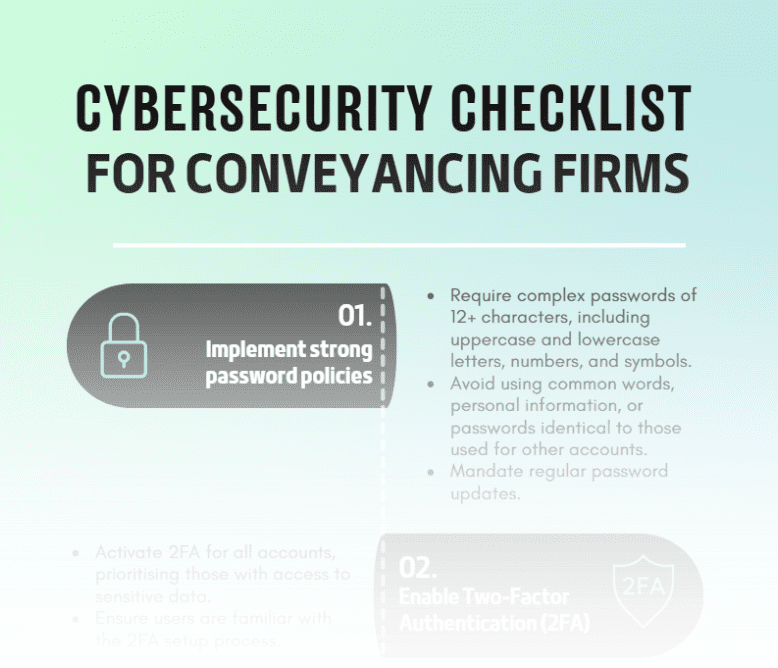2021 Conveyancing Leaders Forum: QLS
To bring you the best insights into the Conveyancing industry in 2022 we’ve started an annual Conveyancing Leaders Forum, a series of interviews with leaders from governing bodies and leading tech firms from across the industry.
Participating this year is: Philip Joyce, CEO, Sympli; Joan Lentini, President, AICVIC; Chris Tyler, CEO, AICNSW; Matt Dunn, General Manager – Advocacy, Guidance and Governance, Queensland Law Society; and our own Taylah Allen, CEO, triSearch.
In this week’s Leaders Forum, we interview Matt Dunn. He reflects on the hurdles and successes QLS and law firms faced throughout 2021 with strains placed on electronic conveyancing solutions.
Speaking of 2022, he predicted potential interest rate rises and changes to legislation to promote more electronic conveyancing practices will help the market reach manageable levels.
Q. How was 2021 for QLS and the conveyancing industry?
Matt Dunn: 2021 was a year of significant challenges and opportunities for QLS and its members [who] engaged in property-based law in Queensland.
The significant push of inter-state migration grew at pace from 2020, this coupled with a low interest rate environment, saw an almost unprecedented level of activity in property sales and conveyancing in this state.
At certain times in the year, activity in Queensland exceeded the more densely populated states with price growth strong as well, albeit coming from a lower base.
These factors united meant conveyancing practices in the cities and regional centres had never being busier. It was pleasing to see that some regional law firms had their first successful year in some time due to these factors.
Q. What were the main highlights and challenges of 2021?
MD: The most significant highlight for Queensland was the good fortune we experienced in dealing with local COVID-19 outbreaks. We were very lucky that none of the clusters we experienced took hold more broadly, as they did in other states.
The measures in place to address the pandemic saw relatively few lockdowns, which led to good levels of local economic activity and facilitated much of the interest in inter-state migration.
The rapid embrace of hybrid working also drove the trend toward South-East Queensland and regional-Queensland relocation, thereby fuelling demand for property.
These factors translated into near boom levels of property sales and transfers. The significant volumes of sales brought challenges for property conveyancing to meet settlement deadlines.
Several elements in the conveyancing chain, such as financial institutions, struggled to meet demand in a timely way.
Experienced staffing shortages, onshoring of processing, travel and movement restrictions and a degradation of the postal service continued to present challenges that were difficult to overcome.
2021 also saw a rapid continuation of the uptake of e-conveyancing in Queensland.
While this was very welcome, members reported that the difficulties financial institutions faced in meeting settlement timeframes eroded some of the benefit they would have expected from an electronic process.
Q. What will be the immediate focus for conveyancers in 2022?
MD: The key focus for Queensland conveyancing in 2022 will be meeting demand and settlement timeframes.
The institutional issues experienced in 2021 led to some widely reported settlement failures, resulting in significant losses to some transaction parties.
Mindful of these examples, all lawyers, financial institutions, and settlement networks will be highly cognisant of the need to ensure early preparation of settlements and timely execution.
In 2022, we will likely see changes to our foundational property law act and commencement of permanent measures to support electronic signing and witnessing of documents.
These measures will facilitate and promote the transition into electronic processing of conveyancing transactions.
Q. What trends do you predict for the conveyancing industry in the next 12 months?
MD: The trends that will affect the practice of property conveyancing in Queensland will be both internally and externally generated. They will likely result in a cooling of pace and volume from late 2021.
Internally, the legislative change will facilitate more electronic processing, leading electronic conveyancing to become ubiquitous in Queensland.
The advent of interoperable transactions in due course and integration with practice management systems will make conveyancing processing easier for law firms.
Externally, interest rates appear to be commencing an upward bias and net inter-state migration to Queensland may cool when vaccination-led measures restore more normalcy and freedom of movement in the southern states.
A reopening and relaxation of international travel requirements may also promote the spending of capital offshore, away from traditional beachside holiday locations in Queensland.
These factors may lower demand for property sales in several Queensland markets and cool the volume of conveyancing transactions we presently observe, into more manageable levels.
Q. What is the most important advice you have for conveyancers for consideration in 2022?
MD: The most important advice for lawyers involved in conveyancing and property for 2022 will likely be twofold:
The first is to keep good and experienced staff. Staffing has been a major disruptor of conveyancing services in the past two years, and it will be imperative that law firms retain good staff who have accumulated experience through the present busy times. Economies are cyclical but good people are not.
The second is that electronic conveyancing has and will continue to be one of the biggest disruptors which law firm operations have been experienced in some time.
The significant impact of technology on law firm operations has only just begun and it is imperative that principals understand the many benefits and risks new technologies present.
Read what other trends the leaders outlined in the 2021 Conveyancing Leaders Forum by downloading your free The Conveyancing Handbook: A guide to success in 2022 now.






